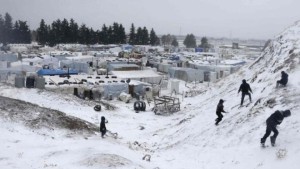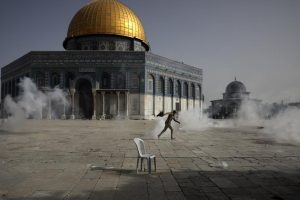Mostafa Kamal Majumder
A charged political atmosphere that the long-awaited start of the process of general elections has created in Bangladesh has a calm undertone – thanks to the wisdom and pragmatism of the newly formed opposition alliance and its leader Dr Kamal Hossain. The last election of 2014 was boycotted by the BNP and almost all major political parties on the question of the abolition of a polls-time neutral administration. The (Jatiya Oikya Front) National United Front leaders, especially those of the major opposition Bangladesh Nationalist Party are much aware of the political debacle that followed the boycott of the last general election in 2014. Lack of representation in the 350-seat Parliament in the nation of 170 million, had left the opposition totally isolated from the statecraft. They had literally no influence, nay any control over the affairs of the state during the last five years. Nor could they bring the government to account for its performance or the lack of it in the preceding term of five years from 2009 to 2014 when the government faced serious criticisms for bank scams, the share market debacle and other issues. Opposition leaders claim reelection of parliament soon after the boycotted election was committed but was never materialized. This made the people to be governed by ‘an unelected parliament’ as 154 of its members had been declared elected unopposed because of the boycott.
However, with Dr. Kamal at the helm of Bangladesh’s main opposition National United Front, the language of politics has undergone tremendous change as he has been professing messages of inclusive politics as against the politics of exclusion and internecine conflicts that marked the relationship between the government and the opposition for the last half of a decade. The front has brought together the popularity of the Bangladesh Nationalist Party, the wisdom of Dr. Kamal Hossain, experience and pragmatism of Jatiya Samajtantrik Dal (National Socialist Party) chief ASM Abdur Rob, organizational skills of Nagorik Oikya (Citizen’s Unity) convener, Mahmudur Rahman Manna, and the patriotic zeal of Dr. Zafrullah Chowdhury, founder of the Bangladesh Liberation war inspired Gonoshasthya Kendra (People’s Health Centre) and architect of Bangladesh’s famous Drug Policy.
‘Be at polling centres whatever the odds, Dr Kamal Hossain has told the people adding, ‘get back your ownership of the state lost in 2014.’ The chief framer of Bangladesh’s 1972 Constitution which is often cited for its democratic features, Dr Kamal Hossain says, the people of Bangladesh created an independent homeland through the bloody war of 1971 for democracy and economic emancipation. But, he alleges, while democracy is now absent in the country, economic inequality has increased with the 5 percent of people at the bottom of the economic ladder losing one-third of earnings in absolute terms and 5 percent others at the top part of the ladder found their incomes more than doubled.
The entire opposition including the Left Democratic Alliance and the pro-Islam Bangladesh Islami Andolan, Bangladesh Khelefat Andolan, and the ‘Jatiya Oikya’ (National Unity) of the Muslim League and the Nationalist Democratic movement) complains of the absence of a level playing field for the parties in the fray. Yet Dr Kamal Hossain says, there will be no boycott of the election ‘even if I die’. Offering to die himself first for the cause of democracy Dr Kamal at a recent press conference urged the people to secure a ‘mass upsurge through the ballot’ on December 30 which is only 7 days away, although his National United Front has made hardly any breakthrough in election campaigns.
While several deaths, hundreds of injuries and several hundred arrests have been reported in election clashes in the districts and in capital Dhaka so far, the election campaign of his alliance candidates is hardly visible in capital Dhaka. Worse even is the disqualification of candidates of the main opposition Bangladesh Nationalist Party leaving more than a dozen constituencies without any opposition candidate? The opposition complains that a process is underway that carry the threat of depriving the opposition of contestants in nearly 50 seats. Following the disqualification of as many as 6 opposition candidates by the learned High Court on December 20, BNP’s election steering committee chief Nazrul Islam Khan as well as the National United Front demanded that either the candidates, who had earlier been cleared by the Election Commission, should be restored or election in those constituencies should be rescheduled to ensure contested elections to Parliament having 300 directly elected seats. The High Court has meanwhile also asked the Election Commission to settle the candidature of 22 others who are said to be representing the Jamaat-e-Islami party, recently outlawed by the Election Commission, and are poised for contesting the polls with BNP’s symbol, the Sheaf of Paddy. Some rivals approached the High Court against their candidature.
The octogenarian Dr Kamal Hossain has stayed away from contesting the election himself on the ground of his physical incapacity due to old age. His move to have a dialogue of the National United Front with the government that ultimately took place at the official residence of Prime Minister Sheikh Hasina on November 1 last was a landmark by itself. Not only it was the first such meeting between the government and the opposition in the last 12 years, but it did also suddenly turn an otherwise heated political atmosphere into a semblance of tolerance and amity, temporarily though. This move was not an easy thing to achieve as the opposition had long been complaining against the government of extrajudicial killings, murders, enforced disappearances, filing ‘baseless’ cases and ‘indiscriminate arrests’ based on those and under the recently recast Digital Security Act. The government was charging the opposition with harbouring militancy, the commission of sabotage, defamation, arson attacks, and crimes against humanity.
The opposition also complained that BNP chief Begum Khaleda Zia, the three times former prime minister of Bangladesh who is lauded for her uncompromising movement till the restoration of democracy in 1991 after nine years of autocratic rule, has been convicted and thrown out of the election ‘on baseless charges’ of corruption. A number of BNP’s former MPs could not file nominations as they were arrested on different charges during the nomination filing time. Former minister Barrister Rafiqul Islam Miah was convicted and the conviction disqualified him in the week before the nomination filing time in a case of non-complying with an order for submission of wealth statement years before.
For years before calling the current election, the demand from the opposition BNP for a political dialogue to ensure inclusive election was repeatedly rejected. Against this backdrop, Dr Kamal Hossain wrote to the Prime Minister for a dialogue soon after the National United Front officially declared its formation on October 13, 2018, at the National Press Club in Bangladesh capital Dhaka. The government accepted the invitation and the dialogue, held at the Prime Minister’s residence dramatically changed the political atmosphere. It was clear that the front was not happy with the dialogue outcome, but it sought to keep the dialogue option open and the government had a second round of dialogue with Dr Kamal Hossain and his political associates on November 7. The government also made good use of the week between the two meetings with Dr. Kamal’s front by holding talks with the Awami League-led 14-party combine and at least 80 parties under the banners of different alliances.
Dr Kamal Hossain, who contested Bangladesh’s 1981 presidential election from the Awami League against BNP nominee Justice Abdus Sattar, wanted the differences on the political process overcome through talks for making the election fair meaningful and, in his words, ‘restoring people’s ownership of the state’. He also wanted the announcement of the election schedule to be held back for resolution of the political differences on the mode of holding the elections. The opposition wanted not only the dissolution of Parliament but also an election-time neutral administration and recasting of the Election Commission itself. These demands, not accepted by the government during the dialogues, were overtaken by the announcement of the schedule of elections by the Chief Election Commissioner KM Nurul Huda on November 8 who called the election for 23rd of December. Dr Kamal and his front, however, would not give up. They met the Chief Election Commissioner and demanded shifting of the date of election by a month. The Election Commission responded by shifting the election by a week to December 30.
Meanwhile, making use of the word given by Prime Minister Sheikh Hasina during the dialogue to ensure a level playing field for the opposition contesting the election, the front leaders organized mass rallies in the divisional towns of Sylhet and Chittagong and then in Capital Dhaka, an opportunity that the BNP-led opposition was denied for the preceding five years on ‘security grounds’. After a big show at a public rally ground in Sylhet, the Front was allowed to hold rallies on streets near the offices of the BNP at Chittagong and Capital Dhaka.
‘The statecraft needs repair,’ Dr Kamal declared, yet the path he has sought and taken so far is constitutional and peaceful. Dr. remains committed to this even now although he has started complaining of a plan to turn the election into a farce by the government. After the disqualification of as many as 16 candidates of the opposition alliance, arrest of nearly half and dozen others and fresh cases filed against some more, the words of threat Dr Kamal used were, ‘we will bring the most serious charge of violation of the Constitution’ which guarantees, liberty, freedom of assembly, thought and expression. The opposition candidates, he alleged, are being obstructed from enjoying those.
While the Chief Election Commissioner KM Nurul Husa says he is happy with the atmosphere for holding a credible election, the opposition led by Dr Kamal Hossain complains of threats and intimidation of their candidates by the administration. They cannot put up campaign posters or banners and cannot freely hold campaign rallies in the constituencies. More than 1000 platoons of paramilitary Border Security Guard have been deployed for law and order. The Election Commission has asked for the deployment of the armed forces – as a strike force – for 10 days beginning on 24 December. Some opposition candidates have expressed optimism that they might have better opportunity to campaign for the election during the week. The seven days before the election would determine how the election would finally be like, and decide whether the government would get another term to rule the country. But Dr Kamal and his front will be remembered for offering a credible democratic challenge by rising above an atmosphere of internecine conflicts and contradiction.




